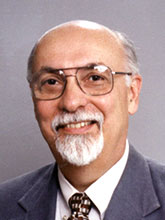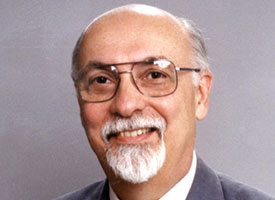With Dr. Bruce Hartung
This month’s “Pressure Points” concentrates on how our congregations can support their professional church workers — especially new workers. In that regard, let’s start with questions from three readers:
Q: Are we excited! We are going to be installing one of your Concordia Seminary students this summer. … We hope that we can help him build a good and productive and longstanding relationship with us as our pastor. Do you have some ideas about how we can help him do this?
Q: We want to make our new DCE become a part of us in our congregation. We need help to develop our youth program. We also know that the DCE will need our help to do what we need him to do. How do we help him at the same time that we show we respect the skills he brings to us?
Q: Our school has a new called teacher coming to join the faculty. I am a member of the school board and I want to help our new teacher settle in. Our school board has begun to discuss how we can be more supportive of our teachers. Do you have examples of how school boards have focused on developing this support?

I commend these readers for a lot of reasons. Among them:
- You are intentional about developing supportive systems for your workers — in this case, your new workers. Supportive people, systems and policies do not just appear; rather, they are a product of thinking about such things, planning for them and developing skills and policies that are actually supportive. You are not being passive, just waiting and hoping that your new workers will be productive and fulfilled in their time with your congregation and school. Keep these conversations and intentionality going!
- You recognize that we share responsibilities for the health and well-being of the members of the community. A congregation or a school should not [call] a worker and then sit back and wait to see how it goes, or figure that the worker can take care of everything alone. We live in the community that St. Paul talks about as the body of Christ, and in that community we intentionally care for and support each other. We do carry responsibilities for each other, and you are taking that mutuality seriously and wonderfully.
I hope and pray that this proactive attitude and mutual sharing can be mirrored by others and blessed by God’s Holy Spirit.
And here are some other ideas for helping our church workers:
- Welcome a fellow human being. Workers are not a special breed without feeling and need. Nor do they walk right off of Mount Sinai. They have foibles and will likely make some missteps. They will need help to understand the culture of your church and/or your school. Teach them. Recognize their humanness. Strengthen their skills. Search for their strengths, recognize them and applaud them. Build honest and transparent relationships.
- Workers who have spouses and families also need support of these folks. Pay attention to the needs of both spouse and children, if they are present. I know that in moves I have made, my spouse and our children had their own moving and adaptation challenges. Be sensitive to those.
- Assume nothing; ask a lot of questions. Sometimes when we do not hear a voice of pain, we think everything is going well. Sometimes it is not. Silence does not necessarily imply that adjustment is going well. Some folks are a bit private in that way. Be proactive and ask not only how things are going, but what kinds of help and assistance are needed. You, the congregation or the school may not be able to assist with everything, but concern and inquiry say a lot.
- Note that there is a book available — Holding Up the Prophet’s Hand: Supporting Church Workers, from Concordia Publishing House ($12.99, item no. 124200). I encourage you and other leaders in the congregation to read it.
If readers have other ideas, I would love to hear them — especially how schools provide support for their teachers. Next month, the plan is for “Pressure Points” to address the other side of this coin, with a couple of questions from workers who are going into their ministry places.
The Rev. Bruce M. Hartung, Ph.D., is professor of Practical Theology and directs the M.Div. and Alternate Route programs at Concordia Seminary, St. Louis. He can be reached at hartungb@csl.edu.
